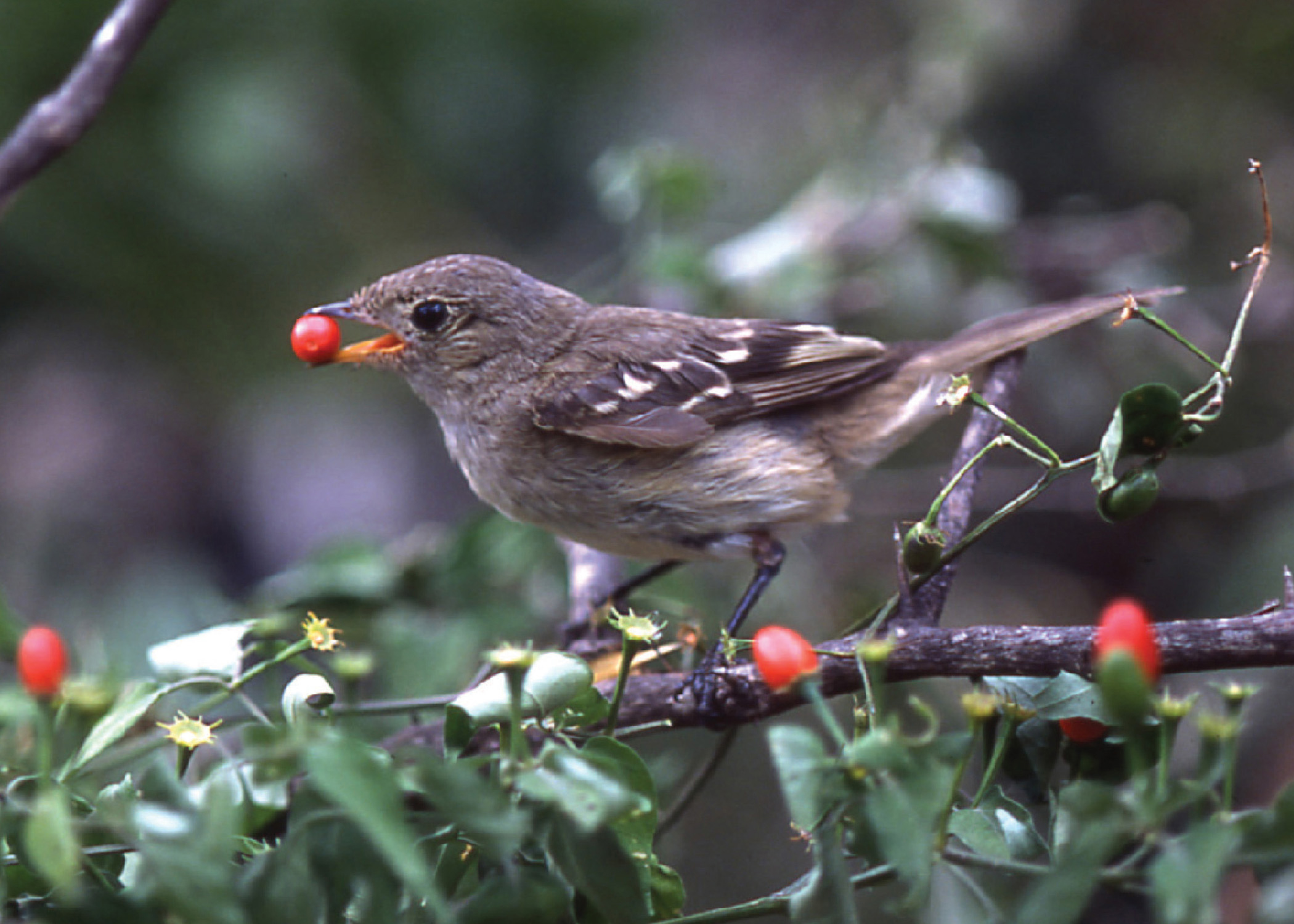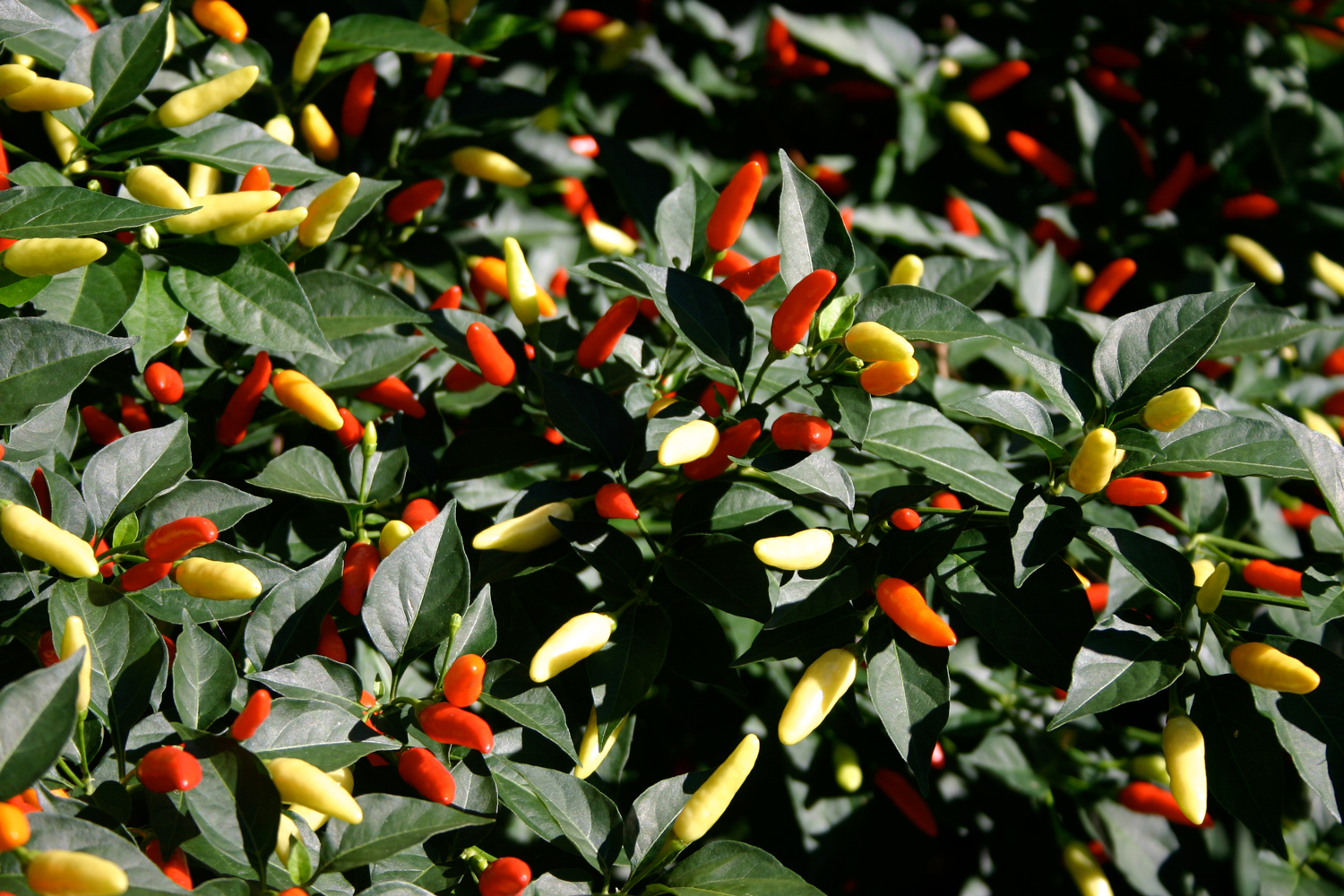Science Note: Best To Be Eaten
Air Date: Week of August 2, 2013

The small-billed elaenia dines on the fruit of common chili peppers—and primes their seeds for success, according to a new study. (Photo: Joshua Tewksbury)
A new study finds that seeds that pass through the digestive tract of a bird may be more likely to avoid fungal infection and predation by ants. Erin Weeks reports.
Transcript
CURWOOD: In a minute, hopes for a massive new marine reserve hit a rock. But first this note on emerging science from Erin Weeks.
WEEKS: In the animal kingdom, getting eaten usually means game over. But for seeds, getting gobbled up may just be the best thing that can happen to them. Researchers from the University of Washington found that seeds that passed through the gut of a common South American bird were almost five times more likely to survive.

Scientists looked at a chili pepper related to this species to test the benefits to seeds of being gut-processed. (Photo: Dik Leffner)
It’s well established that birds and other fruit-eating animals play a critical role in dispersing seeds far from parent plants - but this study provides the first solid evidence of two other surprising benefits birds provide.
The scientists studied chili pepper seeds that were digested by the small-billed Elaenia, a gray flycatcher found all over South America. When they looked at seeds the birds had eaten versus those that were undigested, they found striking differences.
First, digested seeds were only half as likely to be infected and killed by fungus. And second, digested seeds emitted 100 times less of the aromatic chemical compounds that can attract seed-eating ants.
It’s as if traveling through the intestinal tract of a bird “cleaned” the seeds - boosting their protection from traditional predators and giving them a greater chance to germinate into the next generation of chili plants.
Together, the effects add up to a substantial boon to the chili - and, researchers suspect, many other plants as well. All it takes is a trip through the guts of a bird.
That’s this week’s note on emerging science. I’m Erin Weeks.
Links
The open-access study in the August edition of Ecology Letters
Living on Earth wants to hear from you!
Living on Earth
62 Calef Highway, Suite 212
Lee, NH 03861
Telephone: 617-287-4121
E-mail: comments@loe.org
Newsletter [Click here]
Donate to Living on Earth!
Living on Earth is an independent media program and relies entirely on contributions from listeners and institutions supporting public service. Please donate now to preserve an independent environmental voice.
NewsletterLiving on Earth offers a weekly delivery of the show's rundown to your mailbox. Sign up for our newsletter today!
 Sailors For The Sea: Be the change you want to sea.
Sailors For The Sea: Be the change you want to sea.
 The Grantham Foundation for the Protection of the Environment: Committed to protecting and improving the health of the global environment.
The Grantham Foundation for the Protection of the Environment: Committed to protecting and improving the health of the global environment.
 Contribute to Living on Earth and receive, as our gift to you, an archival print of one of Mark Seth Lender's extraordinary wildlife photographs. Follow the link to see Mark's current collection of photographs.
Contribute to Living on Earth and receive, as our gift to you, an archival print of one of Mark Seth Lender's extraordinary wildlife photographs. Follow the link to see Mark's current collection of photographs.
 Buy a signed copy of Mark Seth Lender's book Smeagull the Seagull & support Living on Earth
Buy a signed copy of Mark Seth Lender's book Smeagull the Seagull & support Living on Earth

